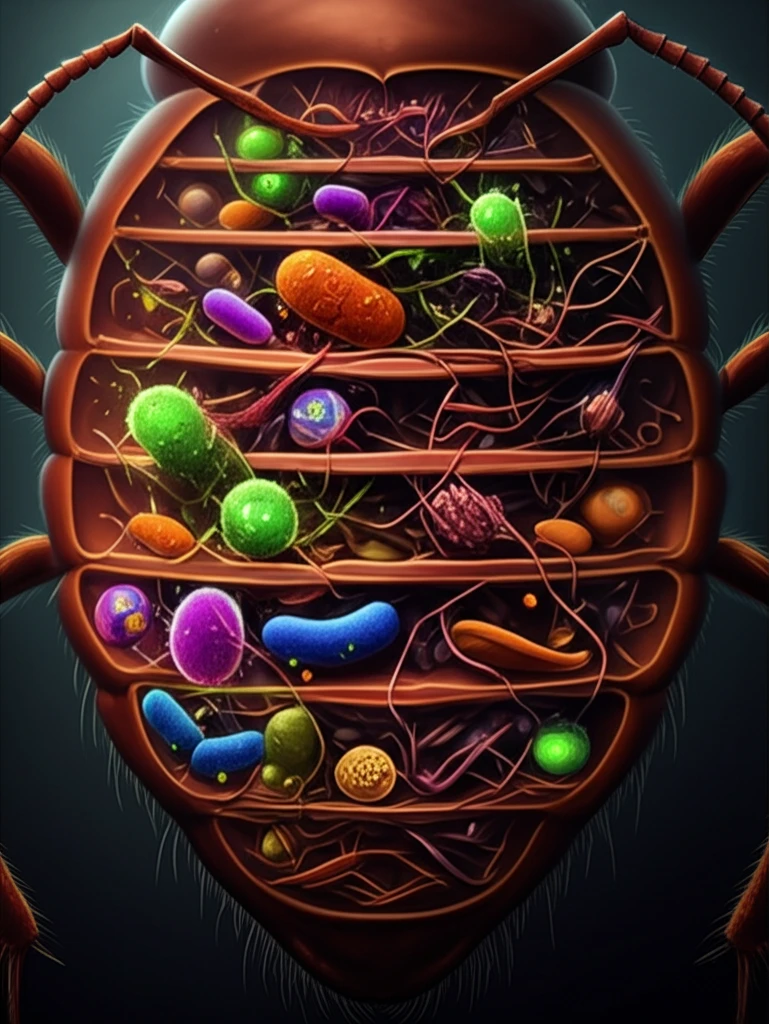
Ant Abdominal Microbiomes: The Unseen World Shaping Fungus-Growing Civilizations
"Delve into the hidden universe of bacteria living within ants and how they drive the evolution of complex fungus-farming societies."
For millions of years, ants have cultivated fungi, creating intricate agricultural systems that rival human innovation. While we often marvel at the visible aspects of these societies – the bustling workers, the carefully tended gardens – a hidden world thrives within: the abdominal microbiomes of these fascinating creatures. These bacterial communities, residing within the ants' digestive systems and associated organs, are not merely passive inhabitants; they actively shape the evolution, health, and social dynamics of these fungus-growing civilizations.
New research has illuminated the crucial role these microscopic partners play in the ants’ success. By studying the abdominal microbiomes of 17 Panamanian ant species, scientists have uncovered how these bacterial communities have evolved alongside ant agriculture, influencing everything from their dietary habits to their defense mechanisms. This is the wild west of biology-a look into the most unexpected creatures playing vital roles.
Prepare to journey into the unseen world within ants, where bacteria are the unsung heroes driving the evolution of complex fungus-farming societies.
A Symphony of Microbes: The Ant Abdomen Orchestra

Imagine an ant's abdomen not as a simple biological compartment, but as a bustling metropolis teeming with microbial life. This is the reality of the ant microbiome, a complex ecosystem dominated by a few key bacterial players: Mollicutes, alpha-Proteobacteria, gamma-Proteobacteria, and Actinobacteria. These aren't just random squatters; they form intricate relationships with their ant hosts, influencing their biology in surprising ways.
- Mollicutes
- Alpha-Proteobacteria
- Gamma-Proteobacteria
- Actinobacteria
A New Lens on Ant Societies
The study of ant microbiomes is still in its early stages, but it is already revealing a wealth of information about the intricate relationships that underpin these complex societies. By understanding the roles these bacteria play, we can gain new insights into the evolution of agriculture, social behavior, and the delicate balance of ecosystems. While the research highlights the importance of these symbiotic relationships, it also suggests the need for caution as these microbial interactions are disrupted by human actions. As we continue to reshape the planet, understanding and protecting these vital partnerships will be crucial for ensuring the health and resilience of these fascinating societies.
